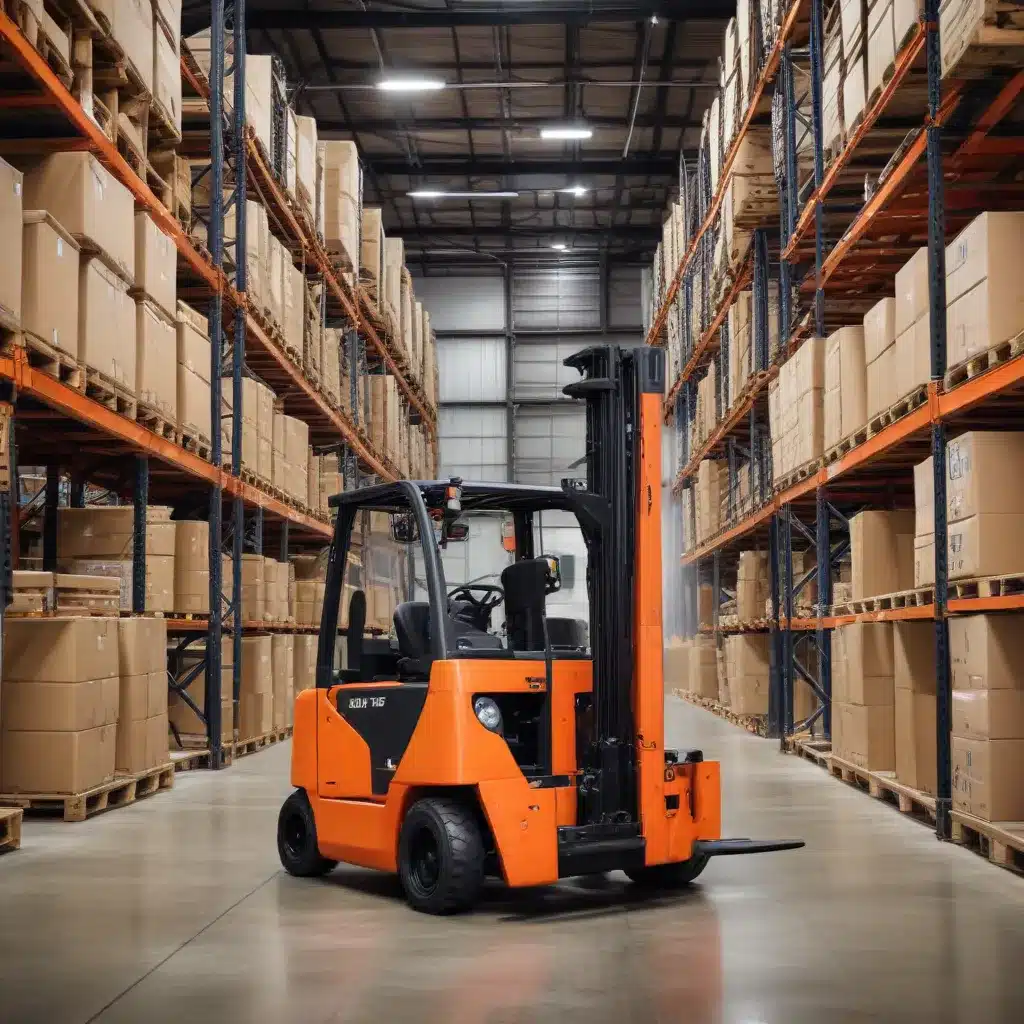
The Evolving Landscape of Warehouse Operations
In the rapidly transforming world of logistics and warehousing, businesses face the daunting task of adapting to the ever-changing demands of the market. As e-commerce continues to disrupt traditional retail models, the pressure to streamline operations, improve efficiency, and enhance sustainability has never been more pronounced.
At the heart of this transformation lies the critical decision of whether to lease or purchase forklifts for your warehouse operations. This choice can have far-reaching implications, not only for your immediate material handling needs but also for your long-term warehouse automation and digitalization initiatives.
Understanding the Forklift Leasing Advantage
Flexibility and Scalability
Leasing forklifts offers businesses the flexibility to adapt their material handling capabilities as their needs evolve. Instead of being saddled with the long-term commitment and capital outlay of purchasing, a leasing arrangement allows you to scale your forklift fleet up or down in response to fluctuating demand, seasonal trends, or changing business requirements.
Technological Upgrades
Leasing often provides the opportunity to regularly upgrade to the latest forklift models, ensuring your warehouse operations benefit from the latest technological advancements. This can be particularly advantageous in the context of warehouse automation and digitalization, where cutting-edge features like telematics, collision avoidance systems, and battery management capabilities can significantly enhance productivity and safety.
Improved Cash Flow Management
Forklift leasing can also have a positive impact on your organization’s cash flow. Rather than allocating a large sum of capital upfront for a purchase, leasing spreads the cost over the duration of the agreement, allowing you to better manage your financial resources and invest in other critical areas of your business.
Reduced Maintenance Costs
Many forklift leasing agreements include comprehensive maintenance and repair services, transferring the burden of equipment maintenance to the leasing provider. This can lead to a reduction in your in-house maintenance expenses, freeing up resources that can be redirected towards other operational priorities.
Evaluating the Advantages of Forklift Ownership
Long-Term Cost Savings
While leasing offers flexibility and convenience, purchasing forklifts can potentially provide greater long-term cost savings, especially if your warehouse operations have stable, predictable material handling requirements. Over the life of the equipment, the cumulative cost of ownership may be lower than the total lease payments.
Customization and Tailored Solutions
Owning your forklift fleet allows you to tailor the equipment to your specific warehouse layout, workflow, and operational needs. This can be particularly beneficial for businesses with unique material handling requirements or those seeking to integrate advanced automation technologies seamlessly into their existing infrastructure.
Asset Appreciation and Resale Value
Forklifts, when properly maintained, can hold their value over time, and the ownership of these assets can provide opportunities for resale or trade-in when upgrading to newer models. This can help offset the initial investment and contribute to the overall cost-effectiveness of the purchase.
Compatibility with In-House Maintenance Capabilities
If your warehouse operations have a dedicated maintenance team with the expertise to service and repair your forklift fleet, owning the equipment can be advantageous. This can lead to cost savings and more control over the upkeep of your material handling assets.
Aligning Forklift Decisions with Warehouse Automation and Digitalization
As you navigate the forklift leasing vs. buying decision, it’s essential to consider how your choice will impact your broader warehouse automation and digitalization initiatives.
Integrating Emerging Technologies
The rapid advancements in warehouse automation and digital technologies, such as autonomous mobile robots (AMRs), warehouse management systems (WMS), and telematics, require a flexible and adaptable material handling infrastructure. Leasing forklifts can provide the agility to seamlessly integrate these innovative solutions, allowing you to stay ahead of the curve and maximize the benefits of warehouse digitalization.
Scalability and Future-Proofing
Leasing forklifts can better position your warehouse operations for future growth and change. As your business expands or your operational needs evolve, the ability to scale your forklift fleet up or down can help you adapt quickly and cost-effectively, aligning with your broader automation and digitalization strategies.
Sustainability and Environmental Considerations
With increasing pressure to reduce environmental impact, the forklift leasing model can facilitate a smoother transition to zero-emissions and energy-efficient material handling solutions. Leasing agreements often include the option to upgrade to the latest sustainable forklift models, enabling you to meet your sustainability goals without the burden of premature equipment obsolescence.
Navigating the Forklift Leasing vs. Buying Decision
When evaluating the forklift leasing vs. buying decision, it’s essential to consider your specific warehouse operations, growth plans, and overall business objectives. Factors such as your capital availability, maintenance capabilities, and the expected lifespan of the equipment should all be carefully weighed.
To assist in this decision-making process, the Forklift Reviews team has compiled a comprehensive comparison of the key considerations for both leasing and purchasing forklift solutions. By carefully analyzing your unique requirements and aligning them with the benefits of each approach, you can make an informed decision that supports your warehouse automation and digitalization initiatives while optimizing your material handling efficiency.
Conclusion: Embracing the Future of Warehouse Operations
As the logistics and warehousing industry continues to evolve, the forklift leasing vs. buying decision has become increasingly complex. By understanding the nuances of each approach and their impact on your warehouse automation and digitalization efforts, you can position your business for long-term success.
Whether you opt for the flexibility and scalability of leasing or the potential cost savings and customization of ownership, the key lies in aligning your material handling strategy with your broader operational and technological objectives. By making this decision with foresight and a clear vision for the future, you can unlock the full potential of your warehouse and drive your business forward in the ever-changing landscape of logistics.

